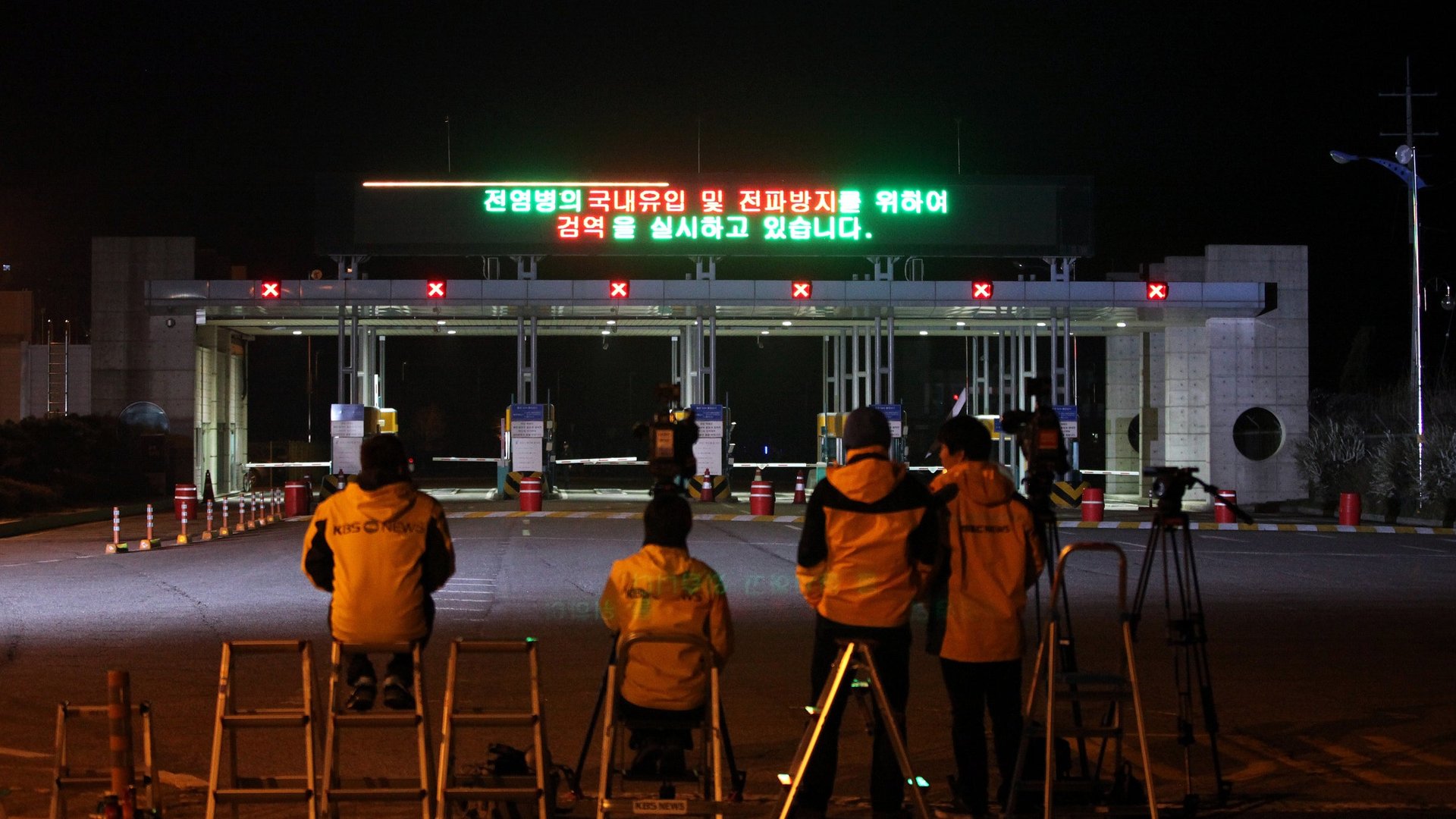Did North Korea close cross-border factories because they were too successful?
Today, South Korea pulled its remaining workers out of the shuttered Kaesong Industrial complex, manufacturing facilities jointly operated by South Korea and North Korea. As economic diplomacy, they symbolized cooperation between the divided nations, and provided North Korean workers with much-needed jobs and $2 billion in trade each year.


Today, South Korea pulled its remaining workers out of the shuttered Kaesong Industrial complex, manufacturing facilities jointly operated by South Korea and North Korea. As economic diplomacy, they symbolized cooperation between the divided nations, and provided North Korean workers with much-needed jobs and $2 billion in trade each year.
Amidst last month’s nuclear tension between North Korea and, well, the whole international community, we watched the Kaesong Industrial complex closely. When North Korea’s authoritarian government shut down the complex, many saw it as a sign of more trouble to come.
But new information suggests that rising tensions didn’t cause North Korea to shut down the complex, but instead gave the country a long awaited excuse. Here’s a report from the DailyNK, a news organization with an agenda but also many sources in North Korea’s ruling party:
The cadre from the North Korean capital told Daily NK on the 29th, “Kim Jong Il’s greatest concern of all was that as the Kaesong Industrial Complex got bigger it would cause a growing number of workers to harbor feelings of interest and longing for South Korean society. Kim Jong Eun is now focusing on Kim Jong Il’s injunction that ‘you must move decisively to close it as soon as you see a chance.’”
In the aftermath of the 2007 summit between former South Korean President Roh Moo Hyun and Kim Jong Il in Pyongyang, one North Korean cadre was removed from post for reporting to Kim Jong Il, “The feeling is that the Kaesong Complex has run well for a few years and the people’s lives are noticeably improving so everyone welcomes it.” Kim allegedly told the man, “You must’ve lost your mind, acting so rashly with no idea about Party policy.”
While closing the complex doubtless enhances the isolation the North Korean regime has made its watchword, it probably isn’t good economic news for the country. Experts say Kaesong provided North Korea with what little technical know-how they had about modern industry, not to mention access to foreign exchange through the goods it exported.
While the closure likely makes North Korea even more dependent on China, it also makes it harder for the two countries to do business: The country plans similar economic free zones near the border with China, but Lim Eul-chul, a South Korean expert in Kaesong, says that Chinese companies didn’t have a lot of confidence in the success of the joint enterprises, and now, they have even less.